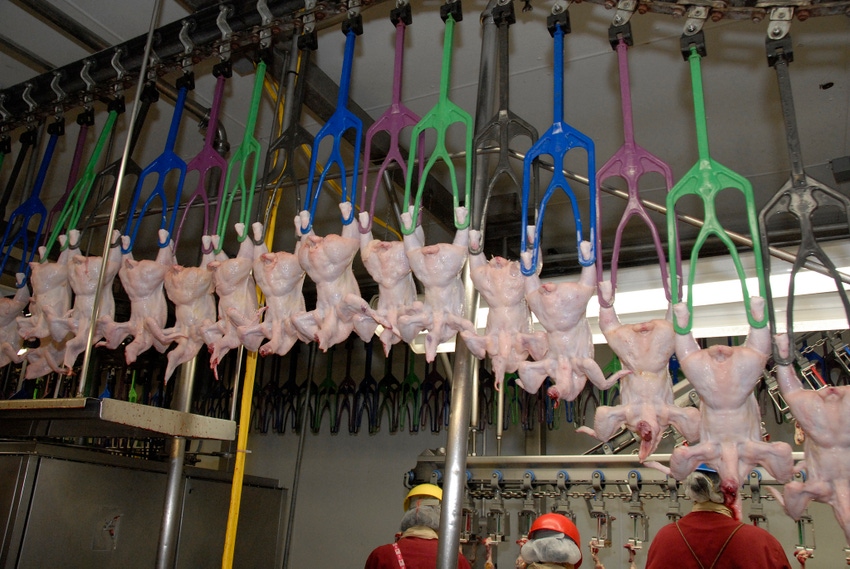HSUS and Mercy for Animals challenge process USDA used in increasing line speed waiver system.

In 2018, the U.S. Department of Agriculture created a waiver system allowing slaughterhouses to kill chickens at a rate of up to 175 birds per minute (bpm), an increase of 25% over the previous line speed limit. Claiming that the increase in speed causes “tremendous concern about the detrimental impacts it is likely to have on animal welfare, worker safety and public health,” The Humane Society of the United States (HSUS), Animal Outlook, Mercy for Animals, the Government Accountability Project and Marin Humane have filed a suit challenging the process USDA used in creating its line speed waiver system.
The lawsuit detailed that during the 2012-14 rule-making process creating the New Poultry Inspection System (NPIS) -- an optional federal inspection system for poultry slaughterhouses -- USDA's Food Safety & Inspection Service (FSIS) considered -- and ultimately rejected -- the exact line speed increase that it has now approved.
“In 2014, after receiving a prodigious number of comments opposing the agency’s proposed speed increase, FSIS prohibited most NPIS chicken slaughterhouses from operating above 140 bpm. The agency, however, provided a narrow exception that allowed no more than 20 slaughterhouses to operate at speeds of up to 175 bpm. Yet, less than five years later, and without engaging in rule-making or providing any acceptable justification, the agency issued its 2018 Line Speed Increase Decision. This decision allows an unlimited number of NPIS chicken slaughterhouses to operate at a maximum speed of 175 bpm and, as noted, forces those that opt in to operate faster than the previous line speed limit or risk losing the federal government’s authorization to operate at 175 bpm,” the suit stated.
“Unfortunately, under the Trump Administration, the same agency chose to sweep these concerns under the rug and did an about-face,” HSUS president and chief executive officer Kitty Block said.
The lawsuit questions the agency’s failure to adequately explain this reversal and argues that before making its decision, FSIS failed to provide Americans with advance notice, as required under law, and the opportunity to comment on the change. It also argues that the agency, in implementing this change, didn’t comply with federal law that requires it to consider the environmental impacts of its decision.
Specifically, the lawsuit claims that USDA failed to provide the public with the legally required notice and opportunity to comment on changes to chicken slaughter line speeds. It also claims that the rule advanced without a consideration of how increasing line speeds would affect slaughterhouse worker safety, despite evidence of high injury rates in the meat and poultry slaughter industries.
USDA allows 37 plants to operate at speeds above 140 chickens per minute (roughly 9 billion chickens are raised for consumption in the U.S. every year).
This suit seeks declaratory and injunctive relief, including an order vacating FSIS’s 2018 Line Speed Increase Decision and all waivers issued under that decision. Plaintiffs also ask this court to remand the matter to the agency and to enjoin FSIS from making any future chicken slaughterhouse line speed increases unless the agency complies with the Administrative Procedure Act, the Poultry Products Inspection Act and the National Environmental Policy Act.
About the Author(s)
You May Also Like




.png?width=300&auto=webp&quality=80&disable=upscale)
